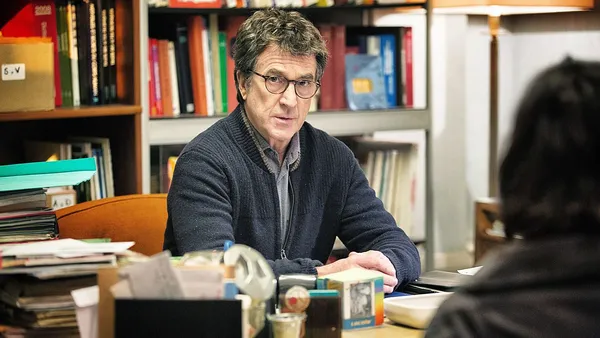Eye For Film >> Movies >> Irreplaceable (2016) Film Review
Irreplaceable
Reviewed by: Amber Wilkinson

Having cast a critical eye over the state of hospital medicine in Hippocrates, Thomas Lilti - who knows a thing or two about the profession as a qualified doctor himself - turns his attentions to a rural practice, while retaining similar themes concerning the importance of experience over qualification.
Despite the ostensibly more tranquil setting, lone doctor Jean-Pierre Werner (François Cluzet) is shown to be every bit as over-worked as his big city equivalents, although he doesn't view it like that. He has spent a lifetime stitching himself into the fabric of his community, viewing his patients as individuals rather than a sum of their ailments. Illness is no respecter of authority, but when Werner finds himself diagnosed with brain tumour he is unwilling to take a step back, if anything throwing himself even further into his work.

His consultant, refusing to take no for an answer, sends medic Nathalie Delezia (Marianne Denicourt) - fresh from a city hospital environment - to help him out, but her welcome is, inevitably, frosty. This classic scenarios of experience versus inexperience, male versus female, town versus countryside feel fresh because Lilti starts by building the characters and then hanging some incidents around them, rather than the other way round. He and his co-writer Baya Kasmi, like Werner, pay attention to the minor, but crucial, details of community life - exemplified by Werner's packed and bustling waiting room or the personality politics of a townhall meeting. The fact that they have chosen older protagonists also helps. Delezia and Werner both have plenty of experience of life and that makes their reactions and interactions less heated, more meaningful and more evenly balanced than it would if Delezia was much younger. There is also the merest frisson between them which deepens the drama but never becomes a device.
"Doctors interrupt every 22 seconds," Werner tells Delezia as he admonishes her for missing a diagnosis because she didn't listen thoroughly enough. Lilti works to the same rules, letting his characters simply exist in a space without having to constantly speak. This is perfect for Cluzet, always a thoughtful actor. Here, in a scene in which he realises the extent of the tumour's impact while eating dinner, we can not only see the physical problem it presents but feel his thought process as he considers its implications. Comedy is also well-handled, gently reminding us of the more absurd aspects of humanity without getting in the way of the more serious central themes concerning the way in which Werner may be his own worst enemy.
Larger world politics, meanwhile, are incidental but pertinent, with Lilti touching on the problems faced by a Romany camp on the fringes of town as well as issues surrounding the 'centralisation' of medical services which can lead to doctors becoming removed from a community setting. This is a much more confident and relaxed film than Lilti's previous, showing more faith in characters and less need for dramatic incident, with the general upbeat energy helped along by the sprightly score from LOW, providing a sense of urgency when needed without upstaging the more emotional moments.
Reviewed on: 05 Aug 2016
















